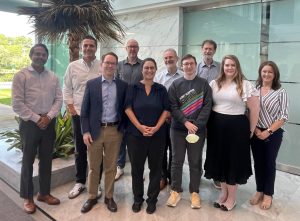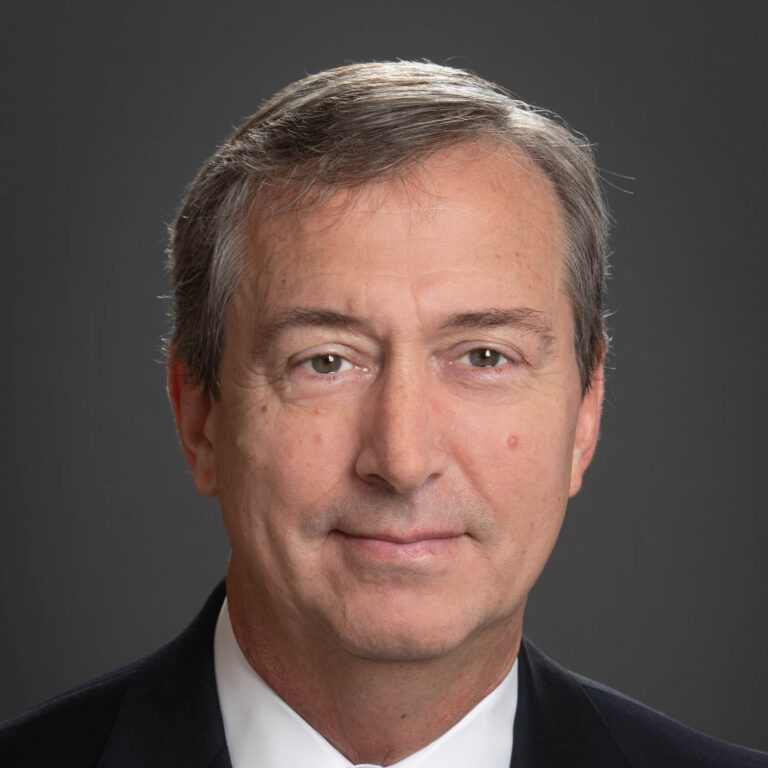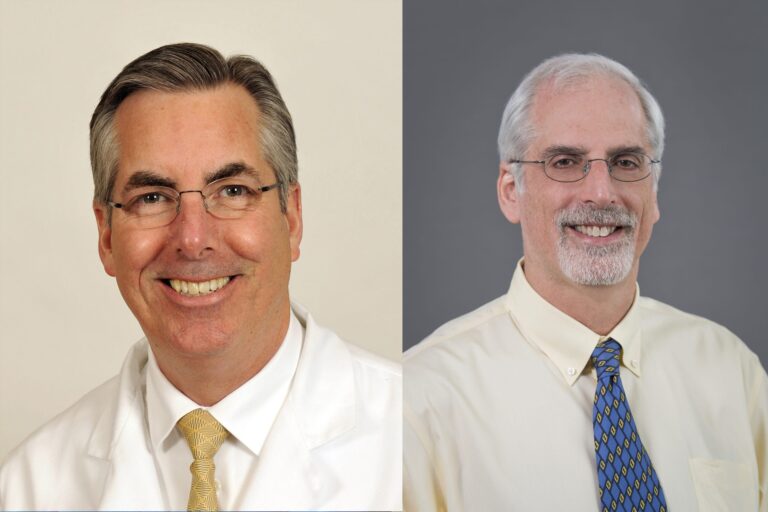Focus on MP: TMP Qualifying Exam Committee Supports ABR Mission
By Matthew B. Podgorsak, PhD, ABR Board of Trustees Chair; Kalpana M. Kanal, PhD, and Robert A. Pooley, PhD, ABR Trustees; Jennifer Stickel, PhD, Future ABR Trustee; and Geoffrey S. Ibbott, PhD, ABR Associate Executive Director for Medical Physics
June 2024;17(3):8

For medical physics (MP) candidates seeking initial board certification, the ABR administers three computer-based qualifying exams followed by an oral certifying exam. The qualifying exams consist of two Part 1 exams (general and clinical) and a Part 2 exam specific to one of the three medical physics disciplines: diagnostic (DMP), nuclear (NMP), or therapeutic (TMP). To complete the board certification process, a candidate must pass a final oral certifying exam (Part 3) in their discipline. Eligibility requirements and timelines for each exam can be found here.
Content for each exam is developed by committees of MP volunteers, all of whom participate in the Continuing Certification program. Each committee has approximately 10 members who are subject matter experts, along with a chair who is responsible for the committee’s work. An associate chair is selected during the chair’s last year on the committee to ensure a seamless transition to new leadership. A committee is also assigned two ABR staff exam developers who provide administrative support.
Committee members are selected by a trustee and the associate executive director for medical physics and are appointed initially for a three-year term, with the possibility of reappointment for an additional three-year term. It is possible for a member to be extended beyond six years on a committee at the trustee’s discretion, although this is unusual. Member productivity is assessed annually by the trustee who oversees the committee. If a committee member is not meeting their goals, the trustee may reach out to establish the reason and determine if the member has the capacity to improve their productivity during the next writing cycle, or if resignation from the committee is more appropriate.
Committees complete their work during an annual item-writing cycle spanning approximately six months and meet virtually several times during the cycle to review, edit, and ultimately approve questions that are added to each exam’s casebook. They build an exam using both new and previously used questions from the casebook and then review it during an end-of-cycle in-person meeting. A trustee provides final approval of an exam after it has been approved by the committee.
The Therapeutic Medical Physics (TMP) Part 2 Qualifying Exam Committee develops content for the casebook from which the exam is built. Candidates for the TMP Part 2 Qualifying Exam are primarily those who have completed a CAMPEP-accredited therapy medical physics residency program, and they generally take this exam for the first time shortly after graduating from their residency. In selecting committee members from the list of potential volunteers who have applied for and were approved for this role, the trustees focus on subject matter experts who have close knowledge of the material upon which an exam is based. For this reason, most members of this committee are either program directors or program faculty of therapy medical physics residency programs. The constitution of other committees will be different based on the specific exam content being developed.

This committee’s work, like that of all item-writing committees, takes place throughout an item-writing cycle. Each member is responsible for drafting numerous questions independently and then presenting them for review first to a senior committee member (known as a senior reviewer) and then, during a virtual meeting, to other committee members and the exam developers. Frequently, a draft question undergoes several rounds of review before ultimately being approved to be added to the casebook. The volunteer engagement throughout an item-writing cycle is typically many hours of independent work, several committee meetings, and finally a 1.5-day in-person retreat.
We are grateful not only to the members of this committee, but also to the members of all medical physics item-writing committees. It would not be possible for the ABR to fulfill its mission without the efforts of the medical physicists who volunteer numerous hours to develop, review, and ultimately approve the questions that the ABR uses to “certify that our diplomates demonstrate the requisite knowledge, skill, and understanding of their disciplines to the benefit of patients.”



